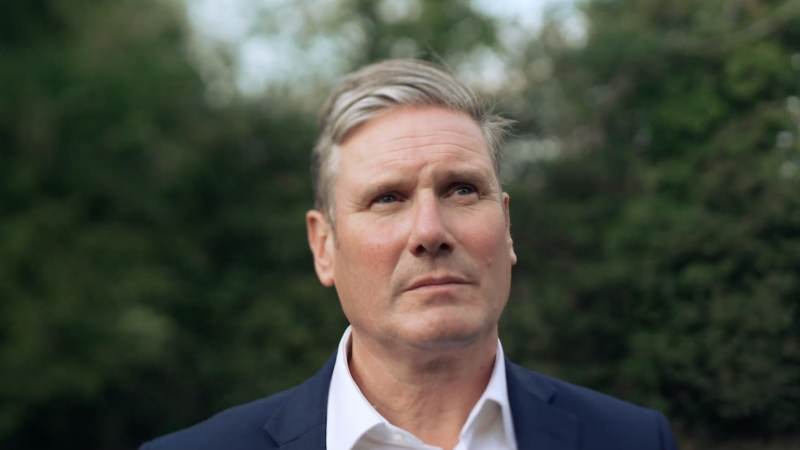
Keir Starmer has firmly rejected the idea of implementing austerity after the coronavirus pandemic, saying “don’t make the mistake we made in 2010” when cuts created inequality and held back economic recovery.
Addressing an online event hosted by youth-led, non-partisan charity My Life My Say tonight, the Labour leader was asked by influencers Munya Chawawa and Swarzy Macaly about a range of issues affecting young people.
On how quickly he would pay off the debt accrued during Covid, Starmer said: “The first thing I’d say is don’t make the mistake we made in 2010 after the financial crash, which was to think that the way through this is to go for austerity and really severe cuts to public services.
“That was a complete mistake in my view, it stripped away our public services, stripped away our local authorities and what they could do, increased inequality massively.”
He added: “I think not only did that create a lot of inequality and make inequality a lot worse for people, it also didn’t allow the economy to recover and put us in a bad position for this pandemic.”
Starmer said he would prefer to “build and turbo-charge your economy rather than cut with austerity out of this”, adding: “The old argument that you need to balance the books as quickly as possible just isn’t right anymore.”
He told the event that “many young people have paid the price” for the decision to opt for austerity in 2010, as young people are often now in insecure employment and “in this very, very precarious position”.
The opposition leader also confirmed that abolishing tuition fees remains Labour policy, described himself as a “stronger believer” in votes at 16, and said students have had a “really hard time” amid the coronavirus crisis.
On students being forced to pay for accommodation they cannot use, Starmer said: “I think universities and certainly public sector student accommodation are beginning to reimburse students, quite rightly, for the accommodation.
“Because some students are in a position where they’re not even allowed into the accommodation that they’re actually paying for. The first thing I’d do is to say to private landlords: do the same thing, do the decent thing and reimburse that.”
On tuition fees, the Labour leader replied: “If you come from a background or family that hasn’t got a lot of money sloshing around, and this would be true of my family, people don’t like to take on debt, they’re scared of debt.
“Tuition fees is a huge debt for young people that they carry with them for a very long time, and that’s why we rightly committed at the last election to getting rid of tuition fees.” He added that other forms of higher education must be factored in.
Asked whether the policy was still a priority, he replied: “Yeah, it is… It’s about how you see education: do you see this as a benefit just for the individual who’s being educated, or do you see education as something where if we educate people that is a good thing for all of us?”
Starmer was grilled on his choice of words when he described Black Lives Matter as a “moment” last year. He later told journalists in July: “If people have thought [I] meant something else, then of course I regret that.”
During the event on Thursday evening, he explained that “what I meant by that was a historic moment”, adding: “Memo to self: use language which can’t be misconstrued in any way when we’re describing things.”
He reiterated Labour’s commitment to a Race Equality Act, saying: “I’m very keen not to commit to too much of what we’re going to do in 2024 before we get there but that was one that the team and I thought was very, very important.”
Starmer said Labour is doing “a lot of work on diversity” within the party and that it has “a diversity board for the first time”. He cited Nadia Whittome and former Camden mayor Nasim Ali as good examples of young politicians.
On Donald Trump being banned from Twitter, he said: “I think it was a good thing that he was denied the platform in the end. It took a while…. There is a question, though, about the power that puts in the hands of those who control the platform, and we need to be careful with that.
“There are voices that do need to be heard and I don’t want to go down the route of big platform controllers basically having more of a control over what we say. But as for Trump, I’m very glad to see the back of him.”




More from LabourList
‘Council Tax shouldn’t punish those who have the least or those we owe the most’
Two-thirds of Labour members say government has made too many policy U-turns, poll reveals
‘Two states, one future: five steps on the path to peace for Israelis and Palestinians’